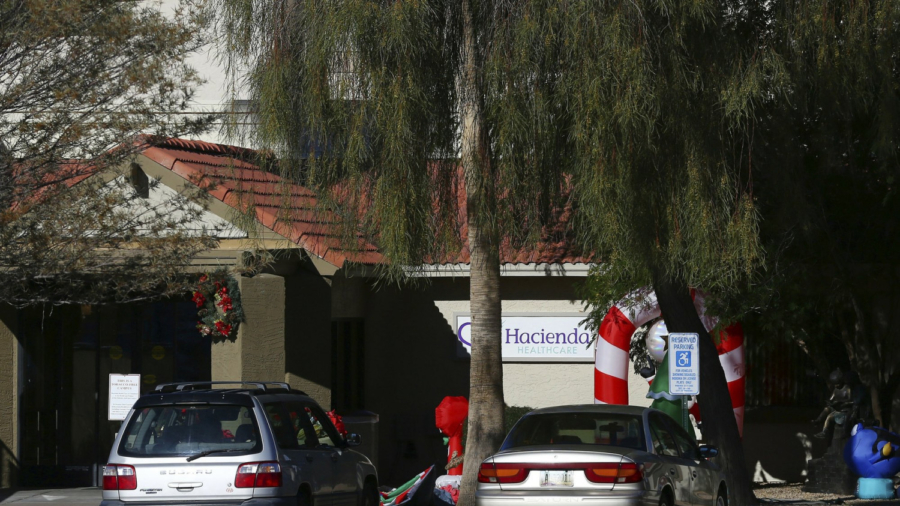An Arizona care facility that was thrown into the national spotlight when an incapacitated woman gave birth after being raped will remain open under state control.
Hacienda Healthcare said on Feb. 7 that the Phoenix facility would be shut down. “After careful consideration, the board of directors have come to understand that it is simply not sustainable for us to continue to operate [the facility]. Thus, we will begin to transition clients and eventually cease operation,” it said in a letter to employees.
But the office of Gov. Doug Ducey said on Friday that the facility would remain open after its owners agreed to allow the state to oversee operations.
“(The agreement) means Hacienda patients and families would be allowed to stay in the home they’ve known for years while ensuring new and enhanced protections and oversight are put in place,” Patrick Ptak, a spokesman for Ducey, told Reuters.
Hacienda said in a new statement on Friday that it had taken steps in the wake of the rape revelation by adding surveillance equipment and improving training.
“Our patients, their families, our team members, and the community deserve nothing less than this commitment from us,” the company said in a statement.
The situation started on Dec. 29, 2018. Nurses at the Hacienda facility called 911, saying they were shocked to see a patient they didn’t even know was pregnant give birth, with a dispatcher and paramedics helping them through the stressful process.
The 29-year-old Native American victim was living in the facility for decades after a near-drowning incident at age 4 left her unable to move freely or speak. Initial reports described her as being in a vegetative state but the family’s lawyer later corrected that description.
After obtaining DNA samples from male staff, the Phoenix Police Department announced on Jan. 23 that it had arrested Nathan Sutherland, a male nurse that helped care for the incapacitated woman. Sutherland, 36, was a licensed nurse who had worked at the facility since 2011.
Sutherland pleaded not guilty to charges of sexual assault and abuse of a vulnerable adult on Feb. 5.

Deterring Abuse
State lawmakers are looking into ways to deter abuse at long-term facilities.
The Arizona Legislature is considering a measure that would let certain facilities install video surveillance in common areas along with a plan on how they would avoid privacy violations.
Illinois, Kansas, Louisiana, Maryland, New Mexico, Oklahoma, Texas, Utah, Virginia, and Washington have passed similar laws or regulations.
“We’re looking into how to make it so parents have more reliable ways to ensure their loved ones are safe,” Republican Rep. Nancy Barto, the measure’s sponsor, told the Associated Press. “I’m learning a lot of group homes already do this. Some of those policies are actually working.”

Many of the laws in place in those states enable residents or their surrogates to put a camera or monitoring device in the room of the resident after they notify the facility.
Carole Herman, founder of the advocacy group Foundation Aiding the Elderly, whose aunt died of bedsores in a nursing home, said that facilities should have cameras in hallways.
“The industry doesn’t want it obviously,” Herman said. “But if they care about these people, what’s the resistance to these cameras?”
Still, others noted that while cameras can be helpful, they don’t solve everything.
“Even if the law’s written perfectly well, it’s not going to capture every form of abuse and neglect,” said Nicole Jorwic, director of rights policy at The Arc, a national advocacy group serving people with intellectual and developmental disabilities.

